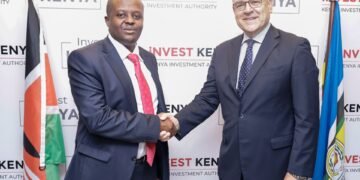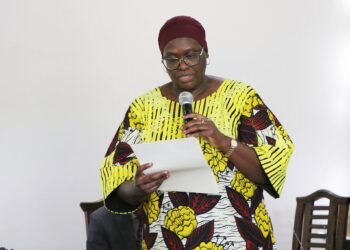The Minister of Information and Culture, Alhaji Lai Mohammed, has said the Buhari Administration is taking loans in order to build world class infrastructure that will benefit generations of Nigerians and reverse the massive infrastructure deficit in the country.
The Minister stated this in Maiduguri, Borno State, on Thursday at a town hall meeting to address the vandalism of power and telecommunications infrastructure in the country.
“Naysayers have recently ramped up their criticism of the Buhari Administration for borrowing. These critics are insincere. We are not borrowing for recurrent expenditure or to pay salaries. We are borrowing to build world class infrastructure that will benefit generations of Nigerians. And we have a lot to show for the loans we have taken.
“Today, the standard-gauge rail lines between Lagos and Ibadan as well as Abuja and Kaduna are running well. Today, we have new airport terminals in Abuja, Kano, Lagos and Port Harcourt. Today, the Itakpe-Warri rail line that was abandoned for decades is running,” he said.
Alhaji Mohammed, who said currently there are well over 13,000km of federal roads under repair, rehabilitation and reconstruction, emphasized that there is a road project in every state of the Federation.
“Today, we have started the countdown to when the 2nd Niger Bridge, which successive administrations have built only on paper, will be completed. The list of projects we are handling with the loans we obtained is long,” he said.
“It is an irony that those who are criticizing us today performed abysmally in terms of modernizing our infrastructure, even when they served at a time when our earnings were multiples of what we get today. Had they embarked on the kind of infrastructure development we are currently engaged in, perhaps there would have been no reason for us to borrow as much as we are doing now.
“We will not be deterred by the antics of those who believe they can play politics with everything,” the Minister said.
He said despite a drastic drop in revenues and competing priorities, especially that of battling insecurity, the federal government has invested heavily in providing new infrastructure, as well as reconstructing and rehabilitating existing ones.
Alhaji Mohammed observed that in recent times, however, such laudable efforts of the government were being thwarted by some unpatriotic citizens through wanton destruction of critical infrastructure, thereby depriving the greater citizenry – for whose benefits these projects and services are provided – from enjoying them.
“Railway tracks are being subjected to wanton vandalism, bridge railings are being removed, manhole covers are being pilfered, and so are critical aviation, power and telecommunications infrastructure. The consequences of such unpatriotic action and behaviour, aside endangering the lives of fellow innocent citizens, include the toll it takes on the government’s limited revenue to replace, rehabilitate or totally reconstruct such destroyed infrastructure,” he said.
The Minister said the town meetings on the protection of infrastructure were meant to create in the public mind that government property are indeed citizens’ property and so must be protected for the benefit of all; sensitize communities especially those where infrastructure are located to be conscious of the import of such and protect them as well as expose, arrest and prosecute all those who engage in buying pilfered infrastructure items, along with those who bring to them to sell.
In his address on the occasion, the Governor of Borno State, Prof. Babagana Zulum, thanked the Minister of Information and Culture, Alhaji Mohammed, for promoting participatory democracy through the town hall meeting series, which he described as a veritable platform for citizens’ engagement and public sensitization.
He said Borno State had been in total darkness for about nine months due to the nefarious activities of the Boko Haram terrorists, who bombed high tension cables and other power infrastructure.
The Governor commended President Buhari for coming to the rescue of the state by directing the NNPC to establish a gas power plant to service the citizens as well as for the plan to set up a 150 megawatts solar energy plant in the state.





























































